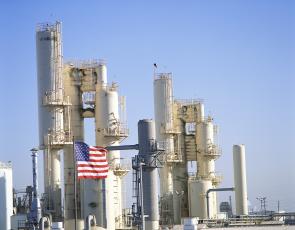WASHINGTON, D.C. – AFPM President & CEO Chet Thompson today issued the following statement on the joint effort spearheaded by West Virginia Senator Shelley Moore Capito and 14 of her colleagues from Pennsylvania, Texas, Wyoming, Mississippi, Oklahoma, Idaho, Utah, Louisiana, and Montana urging EPA Administrator Andrew Wheeler to exercise his agency’s general waiver authority to ensure 2021 Renewable Fuel Standard obligations are achievable and in line with market realities. A copy of the Senators’ letter to Administrator Wheeler is available here.
“Senator Shelley Moore Capito is fighting for West Virginia’s one remaining refinery and for thousands of her constituents who make their livelihoods through refining. We are grateful to the Senator and her colleagues in this effort who recognize that our industry is the lifeblood of U.S. manufacturing and critical to the economic recovery of their home states. There is no U.S. energy dominance or net exporter status without a healthy refining sector.
“Those rooting for higher RFS obligations need to think carefully about what they hope to accomplish by subjecting refiners to even more pain. Bigger mandates will not lead to more ethanol blending. They will result in the depletion of the RIN credit bank, additional imports of expensive foreign biodiesel, and higher RFS compliance costs — which are already a top operating expense for many facilities.
“If EPA chooses not to listen to these Senators and bring mandates in line with fuel demand and infrastructure, the RFS burden will become unbearable for many. Seven U.S. refineries have closed or announced plans to close over the past two years. We cannot allow the broken RFS to put more jobs and refining capacity on the chopping block.”
The American Fuel & Petrochemical Manufacturers (AFPM) is the leading trade association representing the makers of the fuels that keep us moving, the petrochemicals that are the essential building blocks for modern life, and the midstream companies that get our feedstocks and products where they need to go. We make the products that make life better, safer and more sustainable — we make progress.


